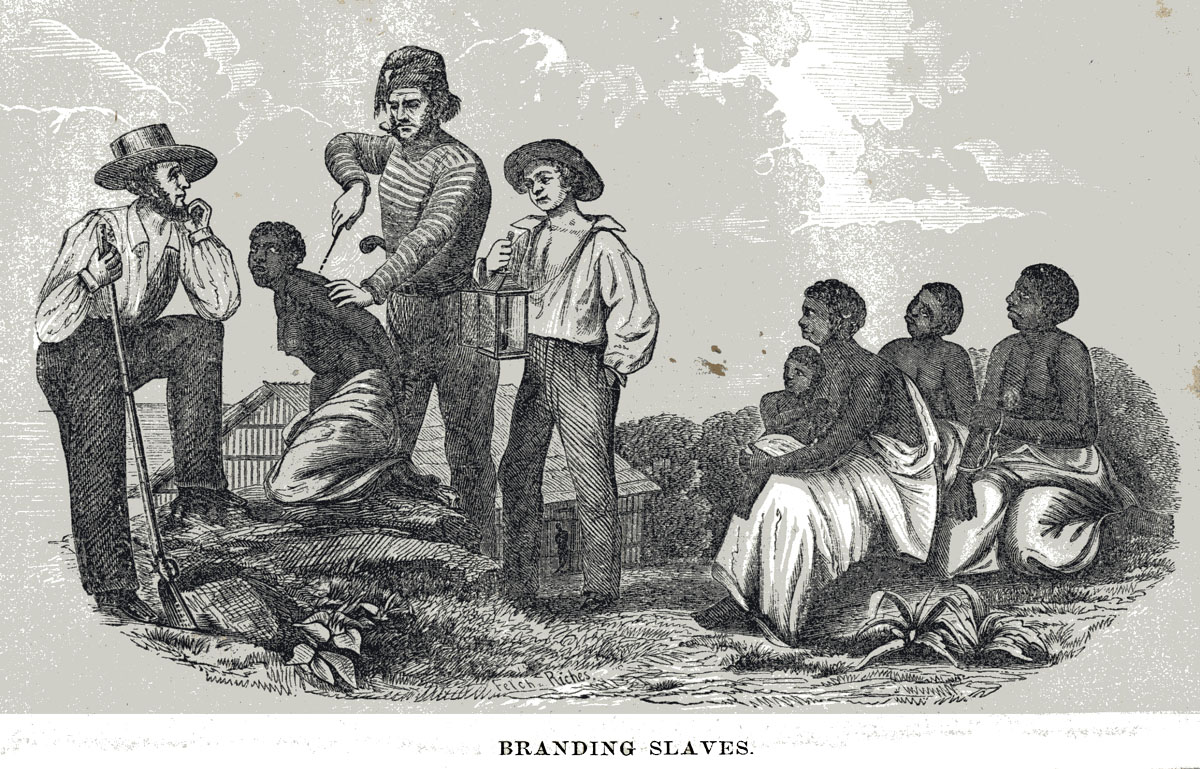 Public Enemy "Can't Truss It"
Public Enemy "Can't Truss It" Showbiz & A.G. "Runaway Slave"
Shabazz The Disciple "Death Be The Penalty"
Gravediggaz "The Night The Earth Cried'
Danja Mowf "Strange Fruit"
Apani "A Million Eyes"
The Masterminds "Day One"
Reflection Eternal "Four Women"
References to the Transatlantic Slave Trade and the lynching of whites by blacks in the United States are pervasive in rap lyrics and yet easy to miss during casual listening. This is not to say that rappers are afraid or unwilling to posit that contemporary inequities stem from the social rupture of chattel slavery. However, most allusions to slavery fail to shed light on the plight of the people most directly impacted by this peculiar brand of institutional malice. The texts of the Nation of Islam and the Five Percenters introduced the concept of ghetto malaise as a crushing “mental slavery.” Out of this notion, articulated on songs like Lakim Shabazz’s “The Lost Tribe Of Shabazz” and Big Daddy Kane’s “Who Am I,” springs a tradition whereby every urban ill from mass incarceration to the supposed “horrors” of an exploitative music industry is likened to The Middle Passage.
Removing themselves even farther from the context of their references, rappers like MC Lyte, Lord Finesse, and Buckshot have re-appropriated Grace Jones’ “Slave To The Rhythm” meme as an empowered stance. Pharohe Monch’s clever reversal (“I’m no slave to the rhythm/ I whip it, then I take its name and change its religion/ Then chop the foot off the fucking beat/ for trying to escape the track, now it’s obsolete”) reminds listeners of the gross violence inflicted on the bodies of the enslaved but resounds more as an enhancement of bravado than an engagement with historical reality. The same is true for Nas’ inaugural claim that his cop-murdering badassness might see him “hanging niggas like the Ku Klux Klan.” Kool Moe Dee’s famous utterance “I never ever ran from the Ku-Klux/ and I shouldn’t have to run from a black man” kindles the memory of American-styled pogroms but draws attention to the immediate terror of urban internecine violence.
A number of rappers have instead approached these subjects with the pomp and gusto of rhetoricians. KRS-One’s tenuous but compelling linkage of the fall of the ancient Egyptian empire to the trauma of slavery on “You Must Learn” is respectfully revisited by Nas on “I Can” but in both instances the depravity of the slave trade is glossed over. The act of enslavement is depicted as a pivotal moment with far reaching consequences but the horrors simply melt into the chaotic pageantry of world history. In the final stretch of his epic "Nature Of the Threat" Rass Kass performs a lively paraphrase of Elijah Muhammad’s incendiary meditation on the slave trade in the West Indies, but this grisly account is meant to incite outrage over the current state of affairs.
Today’s compilation looks at rap songs that break the mold a bit. Talib Kweli’s “For Women” borrows the prototypical characters introduced to the world on Nina Simone's "Four Women," lavishing them with expanded, plausibly interconnected biographies. The narrative is a lot to digest in the course of a single song and Kweli is famously verbose but the listeners are treated to a incisive, less polemical take on slavery's impact across generations. Apani tackles the gendered aspects of plantation subjugation with a searing wit that constrasts beautifully with "A Million Eye's" sweetly somber chorus. Danja Mowf (reinterpeting "Strange Fruit") and The Masterminds capture the paralyzing fear experienced by lynching victims, which they relate through first person narratives that are neither melodramatic nor too detached.
On "The Night The Earth Cried" and "Can't Truss It" the usually heavy-handed sermonizing of PE and the Gravediggaz is delivered instead with an attentivess to the minute details of suffering aboard the slave ships. Shabazz the Disciple interpolates slavery-era "negro spirituals" to express vindictiveness; this is a strange move given his Five Percenter leanings and yetalso a sensible one given the liberation subtext of such spirituals. Finally, Showbiz & A.G.'s "Runaway Slave" connects the vagaries of inner city life to slavery more convincingly than anyone before or since, delving eloquently into the pathologies that ruin communities and the attempts of inspired individuals to overcome.
-- Thun
All thematic mixtapes should come with heavily linked, patiently constructed and supported essays.
ReplyDelete